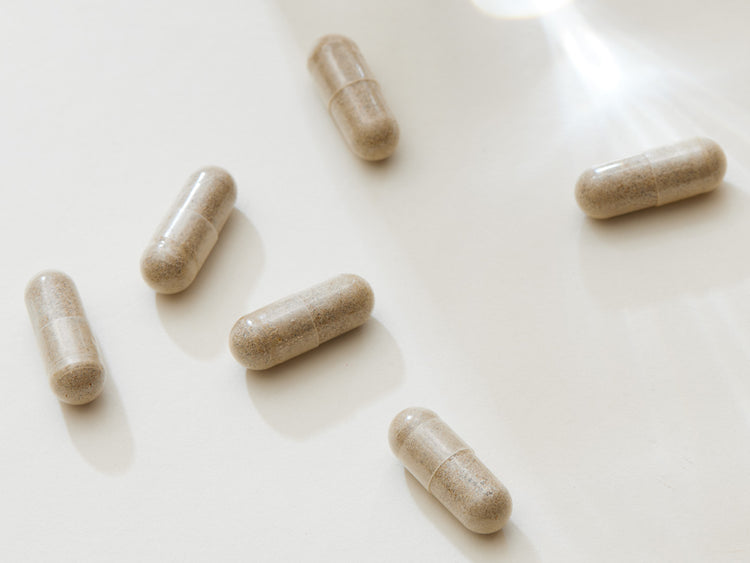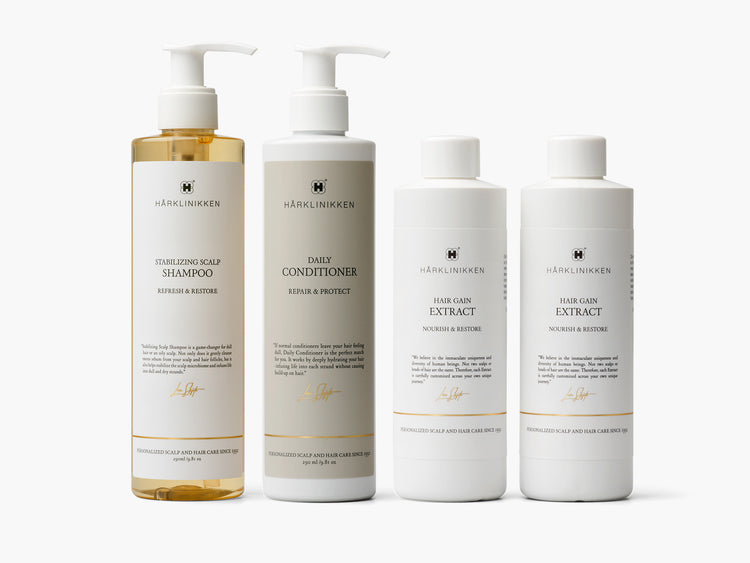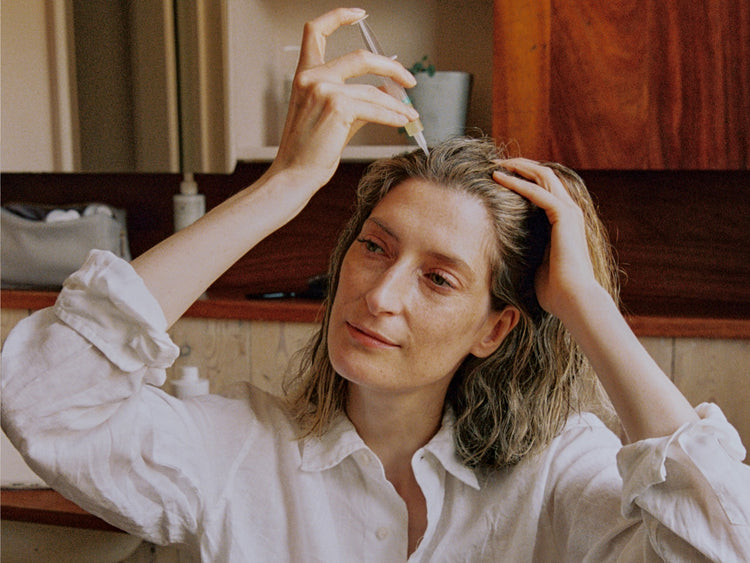Chances are you have a multi-step skincare routine that’s become a welcome daily ritual, but what about your scalp? It’s very possible you’re neglecting it. You might have been hearing about the “skinification of the scalp,” which is essentially treating your scalp like your face. There’s a bunch of ways that your scalp is the same as your face, and a number of ways it’s decidedly different. It’s important to know these similarities and differences in order to treat your scalp right and have it function at its best for more robust hair growth.
Four ways your scalp is like your face:
- Just like skin types, there are scalp types. Your scalp can be oily, dry, combination or normal/balanced.
- Frequent, thorough cleansing is crucial to clear your scalp of excess oils, dirt, pollutants and more.
- Your scalp needs to be properly nourished and protected for optimal function.
- Environmental factors, diet, stress, sleep and more can affect your scalp.
Four ways your scalp is different from the skin on your face:
- Your scalp ages much faster than the skin on your face.
- Six times more quickly, in fact.
- The skin on your scalp is more delicate. Think of your face as printer paper and your scalp as tissue paper.
- There are more sebaceous glands on the scalp than the face (or anywhere on the body). It has a lower barrier function, which means it’s prone to more issues than the face.
Why does the scalp age six times faster than the skin on your face?
The dermis layer of the scalp has connective tissue and changes in that tissue reduce the skin's barrier function, which means it can lose strength and elasticity. This is known as elastosis. As we age, the scalp skin becomes increasingly thin and thus more prone to complications.
Signs of scalp ageing can include:
- Brittle, dry hair
- Dandruff
- Dry, irritated or itchy scalp
- Increased scalp sensitivity
How does scalp ageing affect hair growth?
The speed of hair growth on the scalp varies. It can be as little as .5cm per month and as much as 1.50cm per month. But as the scalp ages, that speed decreases. Sometimes it slows down to as little as .25cm per month.
Why is my scalp so dry?
Dry Scalp Type
Some people naturally have a drier scalp, as their sebum production is lower. (This also decreases as we age.) There’s nothing wrong with that, it just means you need to approach your scalp and hair care a little differently.
Weather
Low humidity, cold climates, and intense indoor heating can cause the top layers of the scalp to become dehydrated. This can result in itchiness, irritation and dull, lifeless strands.
Problematic products
There are a lot of shampoos, scalp treatments, exfoliators, and other haircare products on the market that actually do damage. Harsh chemicals and abrasive scrubs can strip the scalp, which can throw off its pH balance and sebum level.
Eczema, Psoriasis, Tinea Capitis, and other conditions
There are various skin conditions that can cause the scalp to become dry and irritated, or even inflamed and painful. If you’re concerned that you’re experiencing any of the above conditions, we recommend visiting a dermatologist for further diagnosis and treatment.
How to care for a dry scalp:
It’s important for individuals who are prone to dryness to use a mild cleanser like our Fortifying Shampoo, which not only works to gently clear away buildup but also to nourish and hydrate the scalp and strands. In winter and low humidity climates, it’s worth considering investing in a humidifier. And don’t forget to hydrate from the inside too – make sure you’re drinking enough of water.
Why is my scalp oily?
An oily scalp can also be caused by various factors.
Oily scalp type
Some people have a higher sebum production than others, this means their scalp gets oilier faster – sometimes just a day after shampooing, or even the same day. Again, this isn’t anything to worry about, it just means you need a scalp and hair routine in a way that suits your scalp type.
Infrequent or incorrect washing
Not cleansing properly or often enough can lead to an excess of buildup (including sebum, dead skin cells, products, dirt and pollutants) that – if left for too long – can create blockages in your hair follicles, and lead to irritation, dandruff and other conditions.
Weather
Humid climates and hot weather can result in extra sweat accumulating on the scalp, creating issues. Conversely, some people also find their scalp feels oily in cold climates, thanks to wearing hats that trap heat, sweat and dampness.
How to care for an oily scalp:
Those with an oily scalp should use our deep cleansing Stabilizing Shampoo which is designed to cleanse and clear the scalp of buildup while helping to regulate sebum production. Make sure to wash your scalp and hair thoroughly and frequently – especially after exercising or sweating a lot. Be sure to routinely wash hats and headscarves.
How does scalp health affect hair?
Each hair strand begins in the follicle, which exists within the top two layers of the scalp’s skin. These follicles can be likened to pores – they can be clogged or clear. When they are clogged, irritated and/or stagnant, they simply cannot grow robust hair. When they are clear, clean and stimulated, they are able to function properly – producing strong, healthy strands.
What is a healthy scalp?
A healthy scalp is typically characterised by a few factors: clean, clear skin that’s free from flakes and excess buildup; balanced sebum production; and free of irritation and inflammation. If you feel your scalp is excessively oily, dry, itchy or even painful, chances are it’s not in its healthiest condition.
How to get a healthy scalp:
Getting to know your scalp and hair is an important first step. You can take a look at our Scalp Types 101 article here to begin with. Next, it’s time to update your scalp care routine to ensure you’re cleansing frequently, properly and with the right products – like Hårklinikken’s scalp and hair growth optimising shampoos.

Ready to Improve Your Scalp & Hair Health?
Our Hair Supplement is designed to promote stronger, fuller, healthier hair growth and is part of the entire Hårklinikken scalp and hair care system.
Unsure where to start? Book an in-person consultation or take the virtual Hair Assessment.






